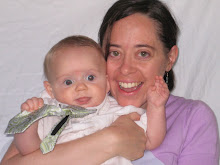domestic poverty
This summer I am working for an organization that deals in domestic poverty--domestic meaning "Salt Lake City, Utah." Utah, especially Salt Lake, has a high number of refugees and immigrants, particularly Hispanics, and these groups make up a large part of what some would term "those in poverty."
But my paradigm of poverty is so different from being in other countries--namely, Africa, Argentina, Chile (both richer South American countries), Peru, and Mexico. I have struggled seeing how giving a loan to someone who has a house, a car, and even a job is helping to alleviate poverty.
Well, I take that back. I struggle to see how someone who has a house, car, and job is termed as someone IN poverty. I went into this summer stint with a strong desire to better understand domestic poverty and figure out ways to help those in poverty right in my own backyard. But I have learned what I didn't expect: poverty is a relative thing.
If you will recall (if you are an avid reader of my oh-so-often blog), I once wrote about how poverty is more than a simple lack of financial resources. Rather, it is an attitude, a disease, a lack of self-esteem, a blow to opportunity, or a crippling defect born by those who happen to not be so affluent. It turns out poverty works in much the same way in the United States--those in poverty are fighting for their self-esteem and their dignity, as much as they are fighting to maintain financial control.
One thing I do need to address sometime (hopefully soon) is how this poverty influences the actions and decisions of many people. More on this later...
But my paradigm of poverty is so different from being in other countries--namely, Africa, Argentina, Chile (both richer South American countries), Peru, and Mexico. I have struggled seeing how giving a loan to someone who has a house, a car, and even a job is helping to alleviate poverty.
Well, I take that back. I struggle to see how someone who has a house, car, and job is termed as someone IN poverty. I went into this summer stint with a strong desire to better understand domestic poverty and figure out ways to help those in poverty right in my own backyard. But I have learned what I didn't expect: poverty is a relative thing.
If you will recall (if you are an avid reader of my oh-so-often blog), I once wrote about how poverty is more than a simple lack of financial resources. Rather, it is an attitude, a disease, a lack of self-esteem, a blow to opportunity, or a crippling defect born by those who happen to not be so affluent. It turns out poverty works in much the same way in the United States--those in poverty are fighting for their self-esteem and their dignity, as much as they are fighting to maintain financial control.
One thing I do need to address sometime (hopefully soon) is how this poverty influences the actions and decisions of many people. More on this later...

